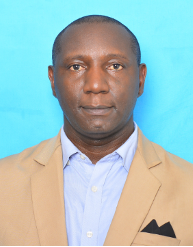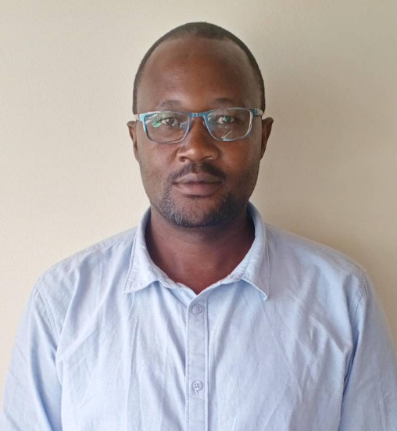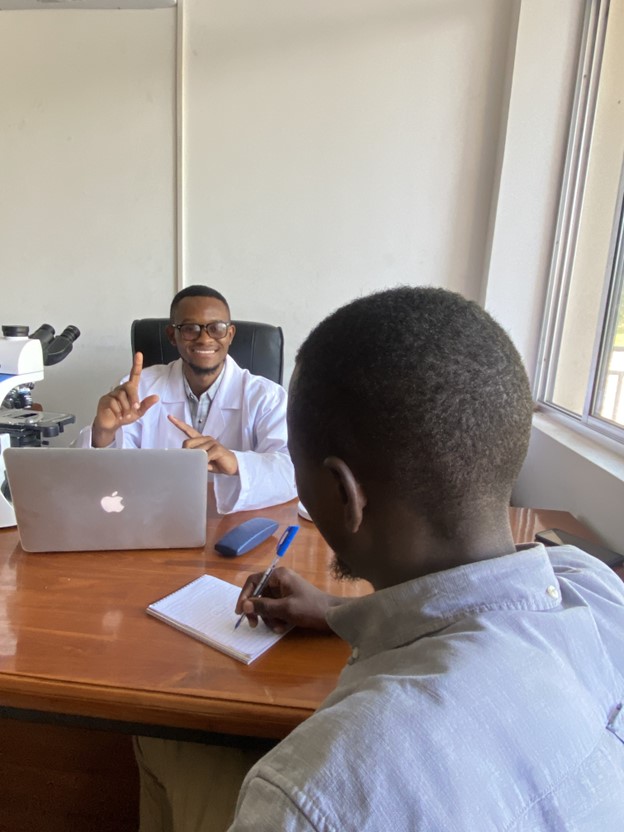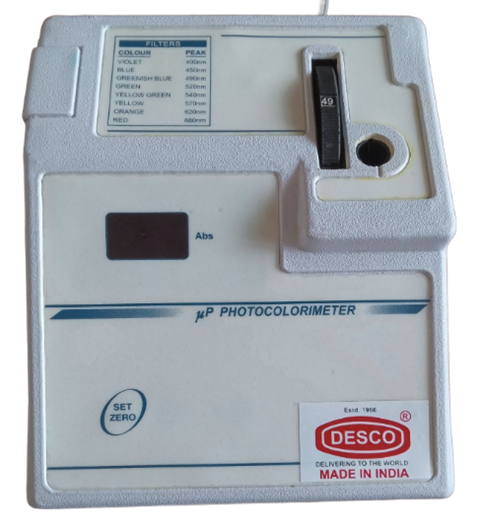SCHOOL OF BIOMEDICAL SCIENCES
Welcome to School of Biomedical Sciences
Our school encompasses the fields of Anatomy, Biochemistry and Molecular Biology, Clinical Pharmacology, Physiology, and Biomedical Engineering.
We take pride in delivering top-tier undergraduate and postgraduate instruction, specializing in programs such as the Bachelor of Biomedical Engineering, Master of Science in Anatomy, Master of Science in Biochemistry, Master of Science in Clinical Pharmacology, and Master of Science in Physiology. We offer tertiary degrees at PhD level across the five departments in the School.
Our educational curriculum serves as the foundation for various healthcare professions, including Medicine, Pharmacy, Nursing, Dentistry, Medical Laboratory Sciences, Physiotherapy, Diagnostic and Therapeutic Radiography, Occupational Therapy, Audiology and Speech Pathology, Biomedical Engineering as well as Public Health and Social Sciences professions.
Through our interdisciplinary and collaborative approach, involving partnerships with other academic units and institutes, students have the opportunity to engage with experts in fundamental sciences and patient care. This prepares them comprehensively for future careers with a deep understanding of biomedical research.
About School of Biomedical Sciences
Welcome to the School of Biomedical Sciences within the College of Medicine at MUHAS.
Our school is distinguished by excellence in basic science, clinical research, and translational research, significantly contributing to the global advancement of healthcare professions. This is achieved through both our research endeavors and research-oriented teaching methods. The school’s reputation has garnered substantial grant funding and partnerships with international institutions, facilitating efforts to address contemporary challenges faced by communities worldwide.
Looking ahead, we envision the School of Biomedical Sciences to continue pushing the boundaries of scientific discovery and education. We anticipate the integration of cutting-edge technologies and methodologies, fostering an even more dynamic learning environment. Our commitment to research and innovation will propel us to the forefront of biomedical advancements, playing a pivotal role in shaping the future of healthcare not only in Tanzania but also on a global scale. As pioneers in the field, we strive to inspire the next generation of healthcare professionals and researchers, leaving a lasting impact on the landscape of medicine and healthcare for years to come.
Welcome to the School of Biomedical Sciences, where you can immerse yourself in a world of knowledge, expertise, and the foundation for a lasting and fulfilling career
Our Programmes
Bachelor of Biomedical Engineering (BBME)
Direct Entry
Three principal passes in Physics, Chemistry and Advanced Mathematics with minimum of 8 points: A minimum of C grade in Advanced Mathematics and Physics and a minimum of D grade in Chemistry. In addition, an applicant must have a minimum of C grade in Biology at O-Level
Equivalent Entry
Diploma or Advanced Diploma in Biomedical, Electrical, Electronics and Telecommunication, Mechatronics, Mechanical Engineering or Computer Science with an average of “B+” or a minimum GPA of 3.5. In addition, an applicant must have a minimum of “D” grade in the following subjects: Mathematics, Chemistry, Biology, Physics and English at O-Level
Anatomy and Histology
THE DEPARTMENT OF ANATOMY & HISTOLOGY
The department of Anatomy, one of the core departments of the School of Biomedical Sciences (SoBS) in the College of Medicine teaches the subject of anatomy to various degree programs at MUHAS both at the Undergraduate and Postgraduate levels. The department also offers short courses including the Morticians Skills course to Mortuary Technicians and Attendants from all over the country. We also conduct research in four sub-disciplines namely: Gross Anatomy, Histology, and Embryology and Neuroanatomy. Further, the department strives to advance the understanding of the structure and the various developmental anomalies.
Objectives of the Department
For training purposes, we aim to offer up-to-date scholarly supported and evidence-based knowledge, skills, and proper attitudes in all areas of anatomy that are necessary for medical and health professions career competency. To the public, we aim to offer technical
Staffing
Currently the department has 9 academic staff, three technical staff and 4 supporting personnel
Teaching
- We offer a Master of Human Anatomy Degree for 2 years. We receive applicants with a first degree in Human and Veterinary Medicine, Dentistry, Physiotherapy and BSc Human Anatomy. Graduates in other health sciences with sufficient training in Human anatomy at undergraduate are also evaluated and admitted to MSc Human Anatomy degree.
- We teach basic and clinical anatomy to all first degree programs in health degree programs
- We teach clinical and applied anatomy to all surgical related master of medicine programs
- We offer a Short courses in Mortuary (1 month) and prosection (3 months) skills to applicants with Form IV/VI or higher qualifications.
Biomedical Engineering
About the department (BME)
Welcome to the unit of biomedical engineering within the MUHAS’s school of Biomedical sciences. The unit was established in 2016 with the first intake of students in 2019, and the first graduates in 2023. With the biomedical engineering being interdisciplinary field, the unit comprises academic staffs in Biomedical engineering, Digital signal processing, Mathematics, Prosthetics and orthotics, data science and Artificial Intelligences. Being an only engineering field in a traditionally medical university, this provides our students with a unique and advantageous exposure to both engineering and medical knowledge within a single university.
Currently, the unit offers a degree in biomedical engineering. The main objectives of the unit is to conduct teaching, research and consultancy services of biomedical engineering and other related fields. Some of the teaching labs include instrumentation lab and medical devices lab. The unit has a total of twelve (12) academic staffs with two PhD graduates. For the sustainability and growth of the unit to become a department, two of the staffs are currently pursuing their PhDs and other two pursuing their master’s degree.
Graduates from our degree program will have enough knowledge, skills and ethics to work in different fields including hospitals, medical regulatory authorities, medical research, pharmaceutical industries, academia and medical device industries to mention a few.
Recently, the unit has established a repair and maintenance center for medical devices. The center provides maintenance, repair and consultation of medical devices for both university teaching laboratories and hospitals across the country. This does not only provide hands on engineering practices to our students, but also provide repair and maintenance services of medical devices to the community. The unit hosts an Emerging Technologies for Health research and development laboratory (ETH). The lab conducts research and development of healthcare solutions using emerging technologies including Artificial Intelligence, Virtual Reality (VR), Augmented Reality (AR) and block chain. The department design , develop and fit various assistive technology (AT) to people with special needs (PSNs) range from adaptive software ,wheelchairs to prostheses & orthoses under rehabilitation and prosthetics & orthotics laboratories.
Biochemistry and Molecular Biology
Welcome to the Department OF Biochemistry and Molecular Biology.
Our department Under School of Biomedical Sciences within the College of Medicine we have more than 16 esteemed academician members, including professors, senior scientists, and research scientists and 5 high skilled technical supporting staffs, who are at the forefront of groundbreaking research across various biochemistry and molecular biology cutting-edge fields. Our mission is to train highly skilled health professionals to excel in research, teaching and consultancy in the fields of Biochemistry, molecular biology, genetics and biotechnology.
Our primary academic objective is to nurture the development of independent learning, critical thinking, and effective communication skills among our students. We strive to cultivate their enthusiasm for achieving excellence. Original research is seamlessly integrated into both our graduate and undergraduate curricula, preparing students for a wide range of career paths, including academia, biotechnology, regulatory authorities, government laboratories, industry, professional schools and post-doctoral training among others. To cater to the diverse needs and interests of our students, we offer a comprehensive selection of educational programs. At the undergraduate level, we provide extensive courses covering biochemistry, molecular biology, medical genetics, and related disciplines. These courses establish a solid foundation for students by imparting fundamental principles and techniques in the field. Additionally, our department offers a postgraduate program leading to a Master of Science in Biochemistry and Molecular Biology as well as provide support in facilitations of other related Master of medicine as well as master of sciences programs.
At the heart of our department is our commitment to cutting-edge research. We uphold internationally renowned and well-funded research initiatives in various fields, including molecular genetics, pharmacogenomics, immunogenetics, cardiogenetics, cancer research, sickle cell disease, antimicrobial resistance, gene therapy, malaria, tuberculosis, neurodegenerative diseases, and bioinformatics, among numerous others.
The Biochemistry and Molecular Biology Department, through the MUHAS Genetic Lab (MGL), also offers expert consultancy services. We provide a diverse range of consultancies tailored to meet the needs of various industries. Some of the consultancies provided by our department include HLA Typing for Kidney transplant, Pharmacogenomics Consultancy, techniques related to biochemistry and molecular biology, molecular genetics, cell culture, flow cytometry analysis, and the diagnosis of rare diseases. These consultancies reflect our commitment to applying our expertise and resources to support and contribute to various sectors beyond academia and research.
Physiology
Department of Physiology, MUHAS
About the Department
As a cornerstone of academic excellence, the Department of Physiology at Muhimbili University of Health and Allied Sciences (MUHAS) is committed to nurturing the next generation of health professionals and researchers. It comprises a team of eight faculty members, including one professor, two senior lecturers, two lecturers, two assistant lecturers, and one tutorial assistant. Additionally, the department has two technical staff and a dedicated secretary to assist the team.
The department offers a wide range of comprehensive basic and clinical physiology programs at undergraduate and postgraduate levels, including PhDs. Their state-of-the-art teaching lab provides a practical learning environment where students can conduct physiological tests such as ECG, EEG, and spirometry. They also have a cutting-edge exercise lab where students can explore exercise physiology principles.
The department’s graduates are well-equipped to work in various fields such as basic science research, medical research, biomedical sciences, academia, sports medicine and medical professionals such as doctors, nurses, or physician assistants.
The Department of Physiology is also actively involved in various research initiatives that impact global health. Their research portfolio includes occupational exposure studies, diabetes and autonomic neuronal dysfunction; body composition changes and lifestyle interventions for pregnant mothers and patients with diabetes mellitus, non-alcoholic fatty liver disease, body fatness, and their relationship with insulin resistance, sports nutrition and athletic performance.
The department collaborates globally with prestigious institutions such as Harvard School of Public Health, Karolinska Institutet, and the London School of Hygiene and Tropical Medicine. They also offer wellness, lifestyle interventions, and physiological assessment consultancy services.
Currently, the department supervises six registered PhD students and has fieldwork spanning both mainland and Zanzibar. They welcome researchers, policymakers, industries, students, sports teams, and the public to engage with them. The Department of Physiology is committed to holistic education, groundbreaking research, and community impact, positioning it as a leader in shaping the future of healthcare and scientific innovation.
Clinical Pharmacology
ABOUT THE DEPARTMENT:
Welcome to the Department of Clinical Pharmacology within the esteemed School of Biomedical Sciences. This department is a center of excellence in pharmacology and therapeutics training, research, and consultancy. The department has nine excellent academic staff, three highly trained technical staff, and one supporting staff. Academic members rank from Senior Lecturer to Tutorial assistant.
The department offers teaching services to undergraduate students in Medicine, Doctor of dental surgery, Nursing, Physiotherapy, Biomedical Engineering, and Medical Laboratory Sciences alongside postgraduate candidates pursuing Master of Medicine (MMED) and Master of Science (MSc) degrees. The Department offers its own program a Master of Science in Clinical Pharmacology. This is a two-year program that equips students with advanced knowledge and skills related to clinical pharmacology, preparing them for diverse career paths in academia, research, clinical practice and pharmaceutical industry. The program is also designed to cultivate the next generation of leaders in pharmacological research and patient care. With a focus on excellence in education, research, and clinical practice, our program stands as a cornerstone in the field of pharmacology.
The Department operates through the three core functions of the University: (i) Training, which lies at the forefront of the department’s mission, where a wealth of knowledge and skills related to pharmacology is impacted by aspiring healthcare professionals; (ii) Research is another cornerstone of the department’s activities, driving innovation and evidence-based practice. Our investigations encompass a broad spectrum of methodologies, from clinical trials to translational research, aiming to improve treatment strategies and patient outcomes. Some of the ongoing research activities include the effect of low-dose Aspirin on HIV disease progression among people living with HIV/AIDS initiating Antiretroviral therapy, Treatment outcomes of schistosomiasis among patients with Tuberculosis in Lake Zone and clinical trials to investigate the optimal dose and metabolic fate of vitamin B12 in pregnancy and high versus low dose iron in multiple micronutrient supplements in pregnancy on moderate and severe maternal anemia (iii) Services and consultancy offered by the department provide invaluable support to healthcare institutions, pharmaceutical companies, and regulatory bodies. Some of the laboratory services provided by the department include drug-level analysis (antimalarials, antiretrovirals, etc.) in a research environment and laboratory animals for pharmacological experiments. Drawing on their pharmacology and clinical practice expertise, the department members can offer strategic guidance on drug development, pharmacovigilance, and regulatory compliance.
Our Staff Members

Head dept of Biomedical Engineering
Dr. Deogratius MzuriKwao,
Deogratias received his Ph.D. from the University of Kent on the Applications of Artificial Intelligence in healthcare in 2020. He previously did his master's in AI at Tianjin University, in China. Deogratias has been researching and practicing machine learning, deep learning, image and voice signal processing which are the core elements of Artificial Intelligence, since 2012.

Head dept of Anatomy and Histology
Denis Russa, BVM, MSc, PhD, Cert. Global Health,
Prof. Denis A. Russa is an Associate Professor and the Head of the Department of Anatomy at the Muhimbili University of Health and Allied Sciences (MUHAS), School of Biomedical Sciences since 2009 to date. He holds a Bachelor of Veterinary Medicine degree from the Sokoine University, Morogoro, Tanzania and a Master of Science degree in Epidemiology and Statistics from the University of Utrecht in the Netherlands. Prof. Russa holds a PhD degree in Molecular and Cell Biology from the Iwate Medical University, Japan.

Head dept of Biochemistry and Molecular Biology
Dr. Florence Urio,
Dr. Florence Urio has a background in Molecular Biology and Chemistry, having achieved her Bachelor’s degree in Science at University of Namibia, Namibia in 2008. She completed her Master of Science in Molecular Genetics and Physiology at Linköping University, Sweden in 2012. Her master`s project was titled “Epstein Barr Virus immortalization and characterization of Malaria Specific B-cells from immune donors” in Prof. Mats Wahlgren's group at Karolinska Institute through which she developed her knowledge of malaria and technical skills in Parasitology and Immunology.

Head dept of Physiology
Dr. Alexander Mtemi Tungu,
Dr. Tungu is a Medical Doctor and Senior Lecturer in the Department of Physiology. He has interests in respiratory physiology, occupational health, and the link between health and socio-economic development. Ongoing research activities: He is part of a research group currently working on occupational noise induced hearing loss in small scale industries. He is also part of a research investigating the effectiveness of structured diet and exercise prescription on compliance and control of cardiometabolic parameters during and after pregnancy. Research interest: respiratory, occupational and non-communicable diseases. Grants and Consultancy: NORHED 2 project SAFEWORKERS – Safe Work Conditions by Innovative Research and Education; including the project on Virtual School in Occupational Health School of Public Health, Addis Ababa University (AAU), Ethiopia School of Public Health, Muhimbili University of Health and Allied Sciences (MUHAS), Tanzania.

Head dept of Clinical Pharmacology
Dr. Rajabu Hussein Mnkugwe,
Dr. Rajabu Hussein Mnkugwe received his undergraduate medical training (MD) (2006 – 2011) at the Muhimbili University of Health and Allied Sciences (MUHAS) and joined MUHAS as a tutorial assistant in Clinical Pharmacology in July 2013. After that, he completed postgraduate training (Master of Science in Clinical Pharmacology) (2013 – 2015) at MUHAS. After his master’s training, Dr. Mnkugwe joined a PhD training in Clinical Pharmacology at Karolinska Institutet through a collaborative project between Tanzania (MUHAS) and Sweden (Karolinska Institutet). He completed his PhD in 2021. Dr. Rajabu Mnkugwe has an interest in research focusing on the pharmacology of drugs for the treatment and control of neglected tropical diseases (NTDs) and other infectious diseases, as well as herbal medications in areas such as pharmacokinetics, Pharmacodynamics (Efficacy/effectiveness and Safety), Pharmacogenetics and Rational drug use and proper prescription. In addition, he is also interested in Non-communicable diseases with a focus on hypertension. Dr. Mnkugwe has skills in designing, organizing, and conducting clinical trials, including pharmacokinetic studies. Dr. Mnkugwe’s experience in clinical trials is mainly through studies in children with schistosomiasis. Dr. Mnkugwe is researching Treatment outcomes of schistosomiasis among patients with Tuberculosis in Lake Zone Tanzania.
Consultancy Services
- Repair and maintenance of medical devices by dept of Biomedical engineering
- Forensic Osteology
- Histological slides preparations for teaching and learning purpose
- Designing and establishing of Anatomy dissection rooms and mortuaries
- Designing curricula in Anatomy
Research Activities Ongoing
- Advancing cord blood banking techniques
- Investigating the critical role of fetal hemoglobin decline and its impact on the expression of sickle cell disease within the first three years of life.
Offered Services
- Glocal
- NIH
- ICGEB
- SIDA SEEDS
Insight



